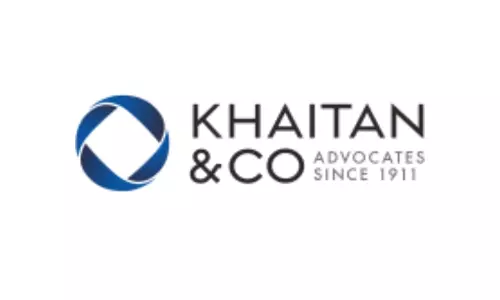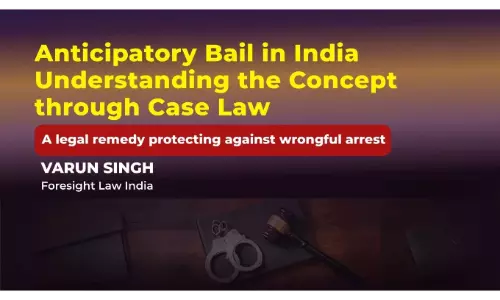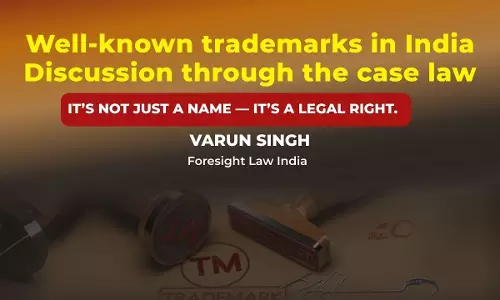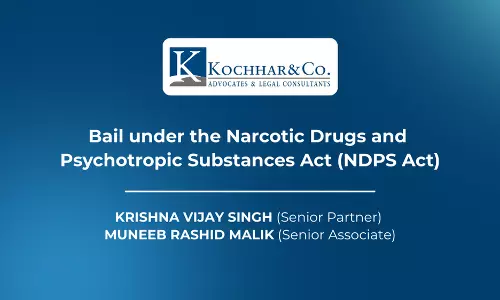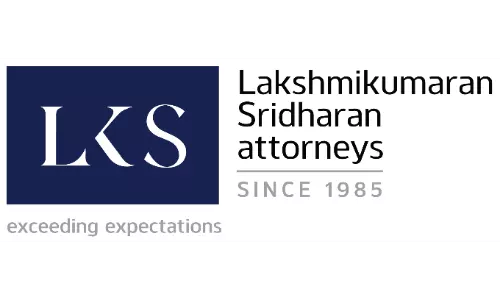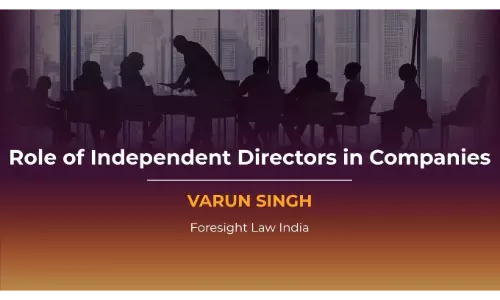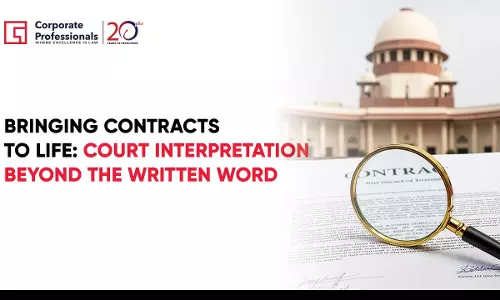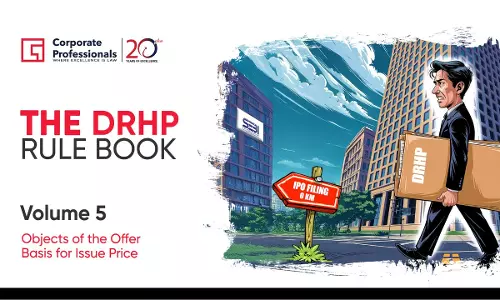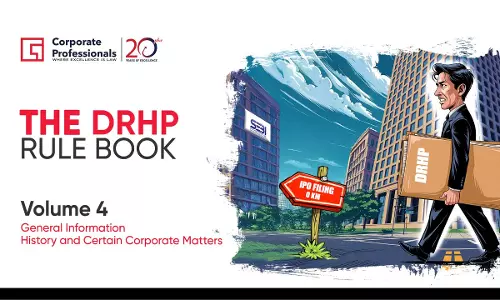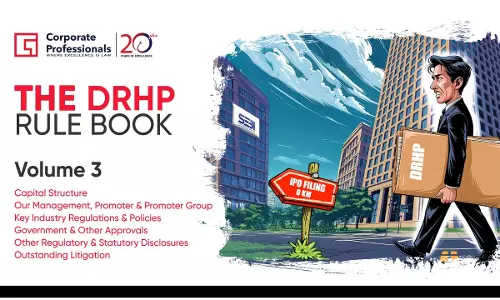Law Firm Articles
From IDEA To IPO: A Legal Playbook For Start-Ups Aastha Abhya
Every large business venture was once a mere idea. A seed that was sown, cared for, which then germinated and grew into what the world now sees as an enterprise. In today's competitive times, with regulatory requirements that can mire a founder in permissions, approvals, and compliance, it is not enough to merely possess an idea. To build that idea into an enterprise, one that takes into account all the legal steps and milestones involved, is almost a requirement today - one that can...
Green Audits: Framework For Sustainable Compliance
On 29 August 2025, the Ministry of Environment, Forest and Climate Change, Government of India (MoEF&CC) notified the Environment Audit Rules, 2025 (Rules) under the Environment (Protection) Act, 1986 marking a development in India's environmental governance. The Rules introduce a structured framework for independent environmental audits aimed at improving compliance, transparency and accountability in environmental regulation. The Rules prescribe setting up of an Environment...
Anticipatory Bail: Understanding Concept Through Recent Case Of MLA Jagan Moorthy
The concept of anticipatory bail is for every person who fears accusation, detention or arrest in lieu of a non-bailable offence. Anticipatory bail is a prior remedy and an application for bail for an offence in which the punishment is that of imprisonment. In the newly enforced Bhartiya Nagarik Suraksha Sanhita, 2023, Section 482 provides for anticipatory, whereas, earlier, Section 438 of the Criminal Procedure Code, 1973 provided for the same. The power to grant anticipatory bail is only...
Well-Known Trademarks In India: Discussion Through The Case Laws
Protection of trademarks in India is governed under the Trade Marks Act, 1999. A trademark plays a vital role in branding, identification, and market distinction. Some brand names or trade names become so deeply rooted in the minds of the public that consumers immediately associate a product or service with that particular name. In legal terms, such brand names are classified as “well-known trademarks” under Section 2(1)(zg) of the Trade Marks Act, 1999. These marks hold immense commercial...
Judicial Infrastructure And Courtroom Digitization, Viable Standards To Progressive Path Ahead
Digitization is an imperative in a country like India where traditional access to justice has been affected by increasing caseloads, and ever-rising demand. But merely applying templatized digital solutions may not be sufficient. To resolve mounting caseloads, procedural delays, and accessibility challenges, India needs a comprehensive reimagining of her judicial processes. While the pandemic prompted the Indian legal fraternity to adopt digital techniques, recent cases indicate the ...
Bail Under The Narcotic Drugs And Psychotropic Substances Act (NDPS Act)
The Narcotic Drugs and Psychotropic Substances Act, 1985 (“the NDPS Act”) is one of the strictest criminal laws in the country. Section 37 of the NDPS Act restricts the grant of bail in matters which involve commercial quantity of narcotic drugs or psychotropic substances. Commercial quantity refers to a large quantity of a narcotic/psychotropic substance above the threshold notified by the government for such substance. Section 37 of the NDPS Act makes bail conditional on what is often...
Alstom India Verdict: Navigating Shifting Sands Of Secondment Under GST Law
The taxability of employee secondment arrangements under the Goods and Services Tax (“GST”) regime has been a contentious issue, leading to significant litigation across India. Multi-national companies often second employees from overseas group entities to their Indian counterparts for a specified period as per business requirements. The salary payment to such seconded employees is made partly in India and partly by the overseas group entity. The payment made by the overseas group entity...
Role Of Independent Directors In Companies
Governance is the most discussed word nowadays in the corporate scenario, the reasons of which are quite obvious owing to the immense competition and regulatory framework. The concept of multi-national companies and their trans-national operation not only requires strict governance with the domestic laws of the country but also demands assurance of transparent working in the organization. In India, the need for stronger compliance and ethically upright companies was observed after the...
Bringing Contracts To Life: Court Interpretation Beyond The Written Word
Every legal document is written in words, but words alone do not decide legal outcomes. Courts do! And when they interpret text, whether from a statute or a private contract, they do more than apply grammar or logic. They weigh text, structure, context, purpose, and effect. Interpretation, in this sense, is not mechanical; it is judgement in action. The Supreme Court ('Apex Court') decision in Annaya Kocha Shetty v. Laxmibai Narayan Satose[1] ('the Case') brought this interpretive...
The DRHP Rulebook: Volume V
In the complex narrative of an IPO, the Objects of the Offer chapter is the very strategic playbook, transforming capital into tangible, strategic goals. This chapter goes beyond a mere listing of fund allocations for the reason that it curates a measurable roadmap that reassures investors that every rupee raised has a purpose, a timeline, and a direct alignment to the company's long-term vision. Anchored by Securities and Exchange Board of India ('the Regulator') regulations, it pushes...
The DRPH Rulebook: Volume IV
Between Identity and Evolution: General Information and the Company's History Continuing the practitioner's journey through its intricate chapters, Volume IV of The DRHP Rulebook shifts its gaze to the bedrock disclosures that open the prospectus: General Information and History & Certain Corporate Matters chapters. These aren't technical appendices; they are, quite literally, the who, where, when, and why of an Issuer Company's public story. Where previous volumes examined the ...
The DHRP Rulebook: Volume III
Step into a Draft Red Herring Prospectus (“DRHP”), where numbers dance with strategy, legalities take center stage, and transparency rightfully gets the spotlight. Still thinking that a DRHP was merely regulatory checklist? Well, think again as Volume III of our series “The DRHP Rulebook” is here to shatter the stereotypes, diving into the eclectic mix of chapters that weave this pivotal document. Following the route taken in Volumes I and II, the third instalment is here to serve as a...




